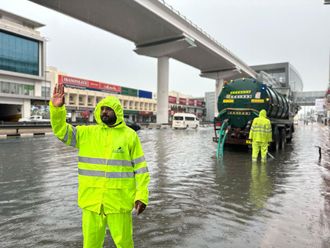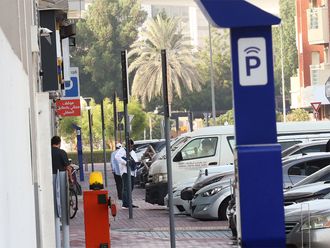Al Ain: The civic administration has launched a safety project to control growing pedestrian accidents on city streets with enhanced road safety mechanisms.
The project has three phases out of which the first has recently been completed with the active participation of Traffic Police, Department of Transport, and Abu Dhabi Urban Planning Council, said an Al Ain Municipality official.
The phase comprised a comprehensive study of all the internal roads and infrastructure and their management with a view to improving the safety and security of pedestrian traffic in the city. The study also kept in focus the 2030 Transport Master Plan of the oasis city.
Engineer Nasser Al Ariani, head of the study project, said the experts have considered all the requirements for pedestrian safety, analysing the statistics of previous accidents.
Appropriate solution
They also studied run-over accidents and identified areas where most of the mishaps were reported. He said an appropriate solution has been found, noting that the project would create a conducive environment for pedestrians' safety.
He said Abu Dhabi Traffic Police statistics show an increase in pedestrian deaths in accidents in the city and the suburban areas. A total of 114 such accidents were reported in 2008, and 110 in 2009 in which many people died or suffered minor to serious injuries. The entire project would take some 28 weeks to complete.
One of the important aspects of the study, said Engineer Al Ariani, is the design details of the most dangerous roads. The municipality has found a solution for such places and modified them to match global standards.
Measures for pedestrian safety have long been demanded by the residents. Many people had complained in the past about motorists ignoring the rights of pedestrians.
Unfriendly for pedestrians
Baqar Ali, an expatriate resident, criticised irate drivers. "For many motorists zebra crossings either do not exist or carry any meaning. I believe Al Ain is the most difficult or unfriendly city for pedestrians until the new measures are put in place," Ali added.
Motorists also criticised pedestrians and cited carelessness as the main cause of the increasing number of accidents.
Suresh Kumar, another expatriate driver, said: "Why don't a majority of them [pedestrians] use designated crossings instead of putting their and others' lives in danger through short cuts?" At non-designated places, he said, drivers often don't expect or see them and that results in tragedies.











